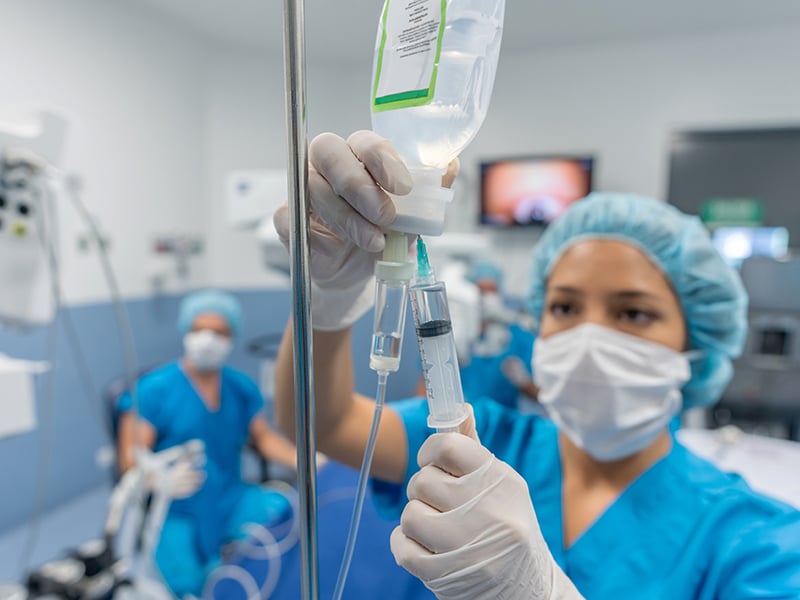Methodist Health System is at the forefront of studying Remdesivir — an anti-viral drug that could become the “standard of care” for reducing the recovery time and severity of COVID-19 for countless patients.
In a medical trial that includes patients hospitalized at Methodist Dallas Medical Center, two-thirds of those who received Remdesivir had good results — and sometimes striking improvement.
“We have seen some extremely encouraging results where people on the verge of death were able to recover and leave the hospital,” says Parvez Mantry, MD, AGAF, FAASLD, CPE, executive medical director of the Methodist Health System Clinical Research Institute.
Although Remdesivir has yet to be approved by the Food and Drug Administration (FDA), hospitals across the country have been given the green light to use it when nothing else seems to work.
“Drug development is usually a long and tedious process,” says Crystee Cooper, DHEd, director of clinical research for Methodist Health System. “In this instance, the FDA and other regulatory bodies have expedited the approval process for testing and use of investigational therapies. We’ve witnessed unprecedented flexibility during the COVID-19 pandemic.”
‘A drug can block this virus’
Remdesivir recently made headlines after a government trial released preliminary, but “highly significant,” results showing a “clear-cut” benefit to patients, according to Anthony Fauci, MD, director of the National Institute of Allergy and Infectious Diseases.
“This is really quite important,” says Dr. Fauci, who has become the face of the U.S. response to the pandemic. “A drug can block this virus.”
Like other anti-virals (think Tamiflu), the sooner patients get Remdesivir, the better, Dr. Mantry says. The drug interferes with an important enzyme the coronavirus needs to multiply and invade more cells in the body, stopping viral replication in its tracks.
Patients who are able to receive this drug before they get extremely ill respond the best,” Dr. Mantry says. “We remain hopeful.”
Following the breadcrumbs
Remdesivir research is ongoing, and there are many battles to come in the fight against COVID-19.
But if treatments like these continue to show promise, the trailblazing teams at Methodist will have helped pioneer lifesaving therapies that give hope to millions.
“We’re trying to follow the breadcrumbs that others before us have left,” Dr. Roush says. “It’s interesting times, for sure.”

